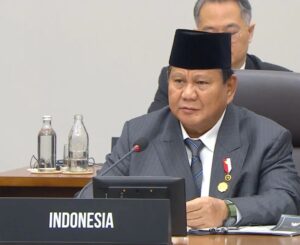Elections 2024 of Indonesia – An Overview

Indonesia, the world’s 3rd largest democracy, will hold world’s biggest one day election next year, more than 200 million voters in Indonesia and 1.75 million members of the Indonesian diaspora will go to the polls on February 14, 2024 to elect the country’s next president and vice president, as well as legislators and councillors at both national and regional levels.
The total number of voters expected accounts for 74% of the total population of this, Southeast Asia’s largest economy.
Anies Baswedan, Ganjar Pranowo, Prabowo Subianto have emerged as leading candidates who are expected to run.
The candidates are expected to formally register between October and November, will be open from October 19 to November 25, 2023.
It will be a close contest between these three popular candidates, the country’s defence minister Prabowo Subianto and a governor of one of its most populous provinces Ganjar Pranowo and former Jakarta Governor Anies Baswedan according to analysis.
Analysts are closely watching which candidate will receive the backing of President Joko Widodo, who, as the first leader to hail from outside the country’s political and military elite, has built great cachet with voters during his 10 years in office.
A recent poll by Indikator Politik Indonesia put Jokowi’s approval rating above 80%.
As a member of the ruling Democratic Party of Struggle (PDI-P), President Jokowi has said he backs the party’s candidate, Ganjar.
Brief about the candidates
Prabowo Subianto lost in the 2009 vice presidential race.
Prabowo is the leader of the Gerindra Party, the second-largest in the parliament. President Jokowi appointed him as the Minister of Defence in 2019.
In a number of national surveys Prabowo comes out on top, slightly ahead of Anies and Ganjar but it’s too early to analyze what will be the public opinion in February 2024.
Ganjar Pranowo, the Central Java governor, has secured a presidential ticket from his party, the Indonesia Democratic Party of Struggle (PDI-P), the country’s largest political party and the party of sitting President Joko “Jokowi” Widodo.
Analysis of public sentiment towards Ganjar’s potential candidacy in 2024 has shown he too is viewed positively. Ganjar is seen as the safest, if not strongest, candidate. The PDI-P holds 22.26% of parliamentary seats i.e. 128 out of 575 and is the only party that does not need to form a coalition to nominate president and vice president candidates.
Ganjar is seen as sharing Jokowi’s characteristics: a civilian with a down-to-earth communication style. And he comes from Central Java, just like Jokowi, which may be important to many voters.
Anies is a popular former governor of Jakarta who is endorsed by Islamist groups. This support helped him win the 2017 Jakarta gubernatorial election.
Anies does not represent a single political party, but his candidacy has been endorsed, so far, by Nasdem Party, Indonesia’s fifth-largest political party, Islamist-based Prosperous Justice Party (PKS) and opposition Democratic Party.
Together, the coalition holds a total of 25.03% parliamentary seats, more than the 20% presidential threshold required for a party or coalition of parties to be able to endorse a candidate.
A study has shown his political image remains positive with the majority of the population, thanks to media coverage. He is framed as intelligent, polite, firm and religious.
Another study indicates Anies has obtained the most public support of potential candidates ahead of the 2024 presidential election but according to my analysis it is too early to say that and it will be decided by the Indonesian public on the election day.
Conclusion
One of the key aspect about Indonesia 2024 elections is that the young generation (aged 22-30 years) will dominate at 56.4% or around 114 million of the total voters nationwide. Half of them will be first-time voters.
Like wise Pakistan, Indonesian young voters also could not be easily driven by their families’ favouritism towards certain candidates.
As number of young voters is huge, political parties and potential candidates have started to implement social media strategies to attract them.
In a democracy, the winning candidate wins because more voters chose to vote, and vote for that candidate, than for other options. The very definition of democracy is that it is a form of government in which the people have the ability to choose their leaders or, in some cases, the policies that they will adopt.
Political outcomes are always contingent; they cannot be predicted with certainty in advance. That does not mean, however, that outcomes are completely unpredictable. By accounting for the rules, how human behavior works, and existing realities, it is possible to reasonably predict what is likely to happen and explain what does happen.
The future of Indonesia is very bright and the people of Indonesia will decide the next president.


